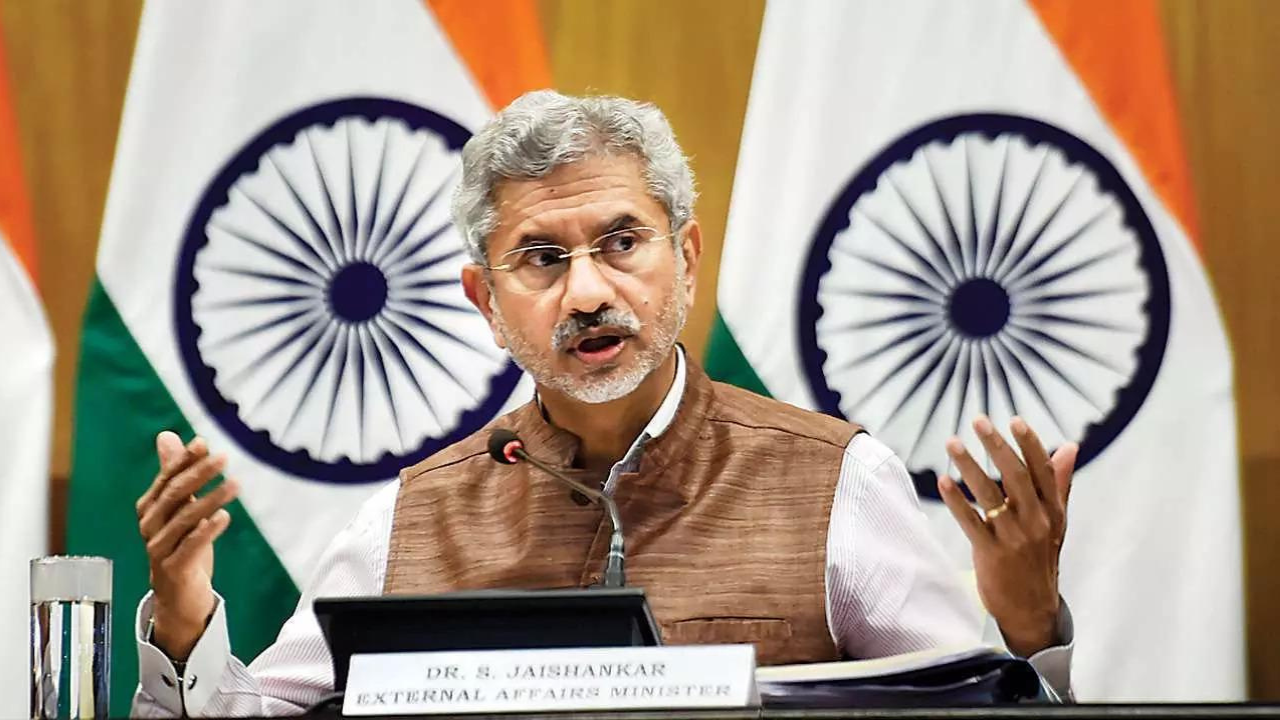NEW DELHI: Foreign minister S Jaishankar is likely to participate in both Quad and Russia and China-led SCO meetings on the margins of the 78th session of the UN General Assembly later this month, during what will be his first visit abroad after the G20 summit in Delhi.
Jaishankar was scheduled to travel to Cuba later this week for the G7 + China group summit but that plan was dropped after the announcement of the special session of Parliament from September 18. He will now travel to New York after the Parliament session and address the UNGA high-level meeting on September 26.
On the margins, the Quad and SCO countries are said to be finalising dates for foreign ministers’ meetings. According to diplomatic sources, efforts are on also to schedule a meeting of Brics foreign ministers.
This will be the third time that the Quad foreign ministers will meet on the sidelines of the UNGA. SCO ministerial meetings have also been held in the past at the same venue. The government doesn’t see any contradiction in its efforts to engage with Quad and SCO as it works to compartmentalise India’s foreign policy in line with its belief in a multi-polar world.
While the Quad meeting will look to prepare the groundwork and finalise the date for the summit which India will host next year, the SCO meeting will be an opportunity for India to reinforce its commitment to working with the Eurasian bloc to deal with issues like terrorism and the need for peace and stability in Afghanistan. On SCO though, India has had a very fine line to tread, given the presence of Pakistan and China’s all-pervasive economic clout. Unlike other SCO member-states, India has never endorsed China’s BRI and at the SCO summit this year, which India only hosted virtually after having changed the original date, the government also stayed away from the SCO 2030 economic strategy because it seemed aligned more with Beijing’s interests.
In Quad too, in keeping with its multi-alignment strategy and long-standing ties with Moscow, India remains the only country to not explicitly condemn Russia for the Ukraine war. This strategy has served the government well in these turbulent times in international relations and, according to Indian authorities, was also instrumental in bringing about an unexpected G20 consensus that cleared the way for the New Delhi Leaders’ Declaration.
Jaishankar was scheduled to travel to Cuba later this week for the G7 + China group summit but that plan was dropped after the announcement of the special session of Parliament from September 18. He will now travel to New York after the Parliament session and address the UNGA high-level meeting on September 26.
On the margins, the Quad and SCO countries are said to be finalising dates for foreign ministers’ meetings. According to diplomatic sources, efforts are on also to schedule a meeting of Brics foreign ministers.
This will be the third time that the Quad foreign ministers will meet on the sidelines of the UNGA. SCO ministerial meetings have also been held in the past at the same venue. The government doesn’t see any contradiction in its efforts to engage with Quad and SCO as it works to compartmentalise India’s foreign policy in line with its belief in a multi-polar world.
While the Quad meeting will look to prepare the groundwork and finalise the date for the summit which India will host next year, the SCO meeting will be an opportunity for India to reinforce its commitment to working with the Eurasian bloc to deal with issues like terrorism and the need for peace and stability in Afghanistan. On SCO though, India has had a very fine line to tread, given the presence of Pakistan and China’s all-pervasive economic clout. Unlike other SCO member-states, India has never endorsed China’s BRI and at the SCO summit this year, which India only hosted virtually after having changed the original date, the government also stayed away from the SCO 2030 economic strategy because it seemed aligned more with Beijing’s interests.
In Quad too, in keeping with its multi-alignment strategy and long-standing ties with Moscow, India remains the only country to not explicitly condemn Russia for the Ukraine war. This strategy has served the government well in these turbulent times in international relations and, according to Indian authorities, was also instrumental in bringing about an unexpected G20 consensus that cleared the way for the New Delhi Leaders’ Declaration.
